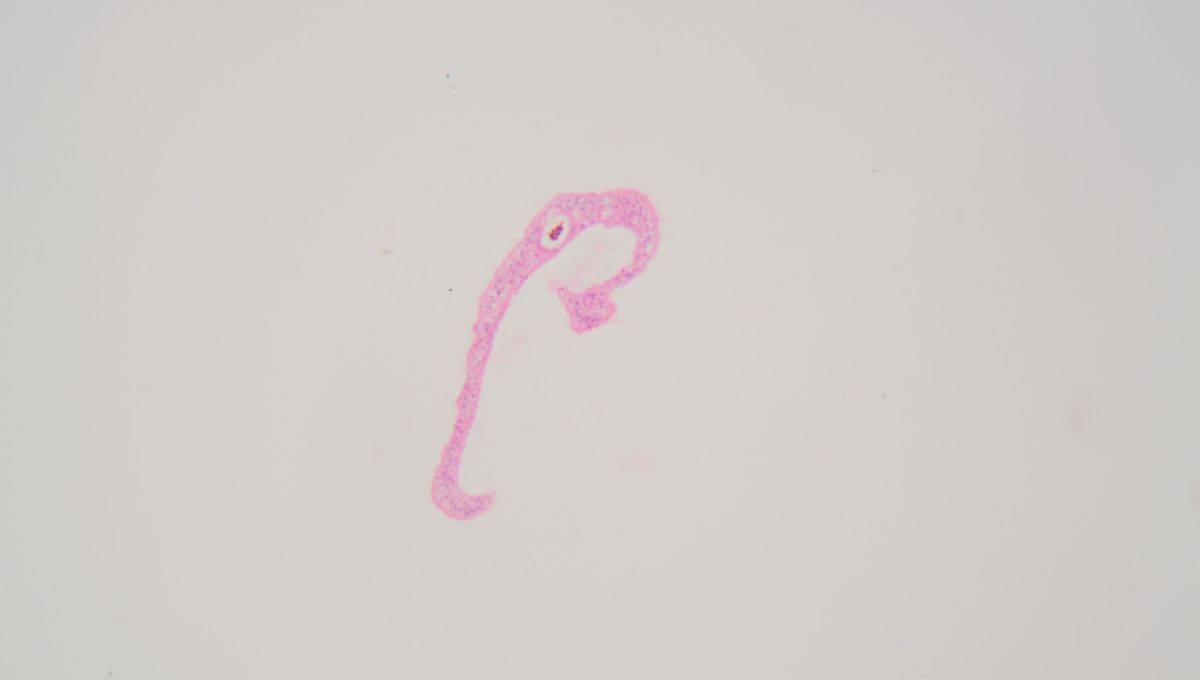
A parasitic worm that can burrow into the skin may help inspire the next generation of painkillers, potentially providing a viable alternative to opioids, new research has suggested.
By suppressing neurons in the skin, Schistosoma mansoni sneaks past the immune system’s pain sensors, helping it to evade detection. If we were to discover the molecules responsible for this suppression, we could harness them to create new medicines.
In an attempt to do just that, researchers from Tulane School of Medicine investigated the role of a protein called TRPV1+ in mice infected with S. mansoni. By blocking the protein and measuring the rodents’ sensitivity to pain, the team discovered that the parasite is able to trigger a reduction in the activity of TRPV1+, which is involved in pain-sensing in sensory neurons. The protein plays a key role in sending signals that the brain interprets as heat, pain, or itching, and so by blocking this pathway, S. mansoni effectively nullifies these symptoms, allowing it to invade undetected.
As horrifying as that sounds, it could prove useful.
“If we identify and isolate the molecules used by helminths to block TRPV1+ activation, it may present a novel alternative to current opioid based treatments for reducing pain,” said Dr De’Broski R. Herbert, Professor of Immunology at Tulane School of Medicine, who led the study, in a statement. “The molecules that block TRPV1+ could also be developed into therapeutics that reduce disease severity for individuals suffering from painful inflammatory conditions.”
TRPV1+ also offers its host immunity against S. mansoni – its activation, the researchers found, leads to the rapid mobilization of immune cells that are known to cause inflammation. The inflammatory response helps to block the parasite’s entry through the skin, which explains why S. mansoni, by suppressing TRPV1+, is so successful at infecting its host.
Worms like S. mansoni can cause a parasitic infection known as schistosomiasis – the second most dangerous parasitic disease after malaria. The parasites that cause schistosomiasis live in certain types of freshwater snails and can leach into the water – you can become infected if your skin comes in contact with contaminated water, for example when swimming, washing clothes, or fishing. Infection with other parasites typically causes pain, itching, or rashes, but not S. mansoni.
As well as inspiring future pain medications, further research into the worm could help treat tropical diseases like schistosomiasis.
“Identifying the molecules in S. mansoni that block TRPV1+ could inform preventive treatments for schistosomiasis,” said Herbert. “We envision a topical agent which activates TRPV1+ to prevent infection from contaminated water for individuals at risk of acquiring S. mansoni.”
The next step is to investigate the molecules that are responsible for blocking TRPV1+ and the associated immune cells, and then hopefully, these proposed treatments could become a reality.
The study is published in The Journal of Immunology.
Source Link: This Parasitic Worm Could Hold The Key To New Alternatives To Opioid Treatments